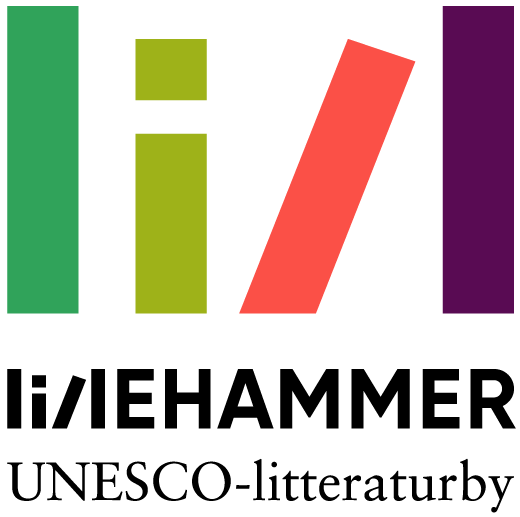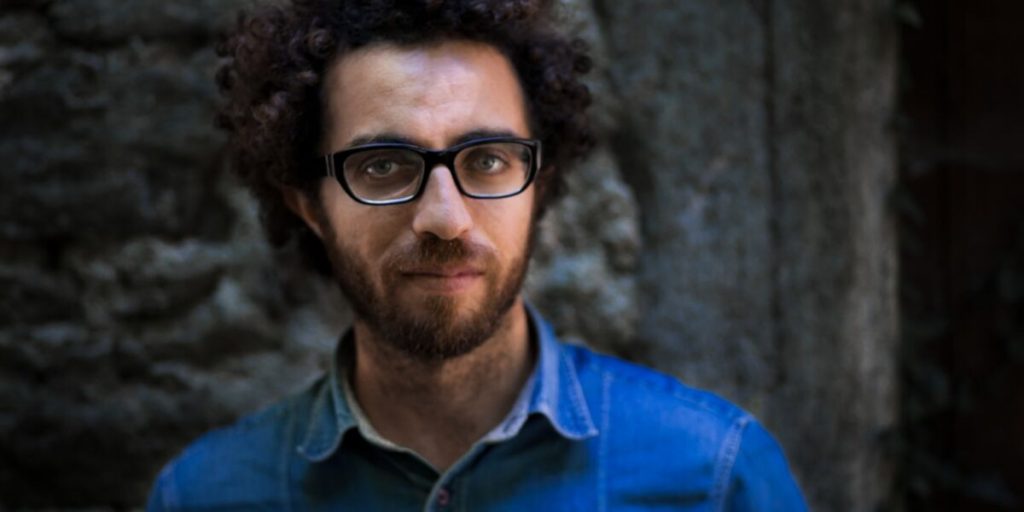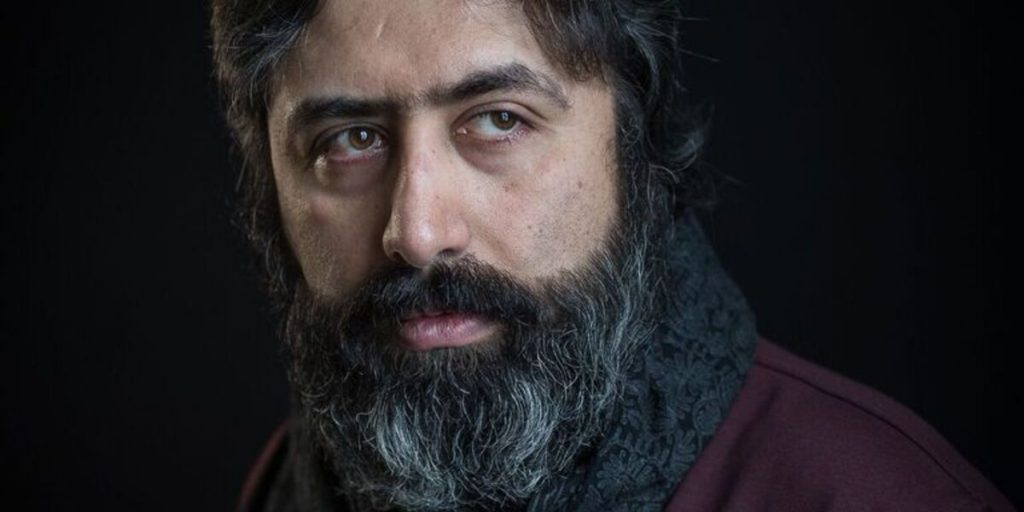Read the letter from Lillehammer’s ICORN poet Mehdi Mousavi to his fellow writer Mazen Maarouf in Reykjavík.

Hi dear Mazen,
Years ago, when I was young and living in Iran, I used to write long letters to my friends. With the advent of the Internet and the proliferation of mobile phones and social networks, this old habit was forgotten. We writers prefer letter-writing to face-to-face talking or talking on the phone, perhaps because “writing” is our proficiency and we know how to hide ourselves behind words. However, it is difficult to write a letter to someone who you do not know and your information about him is limited to a few sentences on the Internet. It is even harder when it comes to the first time you want to write that letter. The first ones are always the hardest. The first time you are beaten by a teacher, the first sex, the first failed romance, the first experience of imprisonment and torture, the first white hair and maybe the first words between two people in the first letter! This is enough to break the ice, after that everything will be easier. People get used to everything very quickly. They even forget how difficult “the first” was.
My letter is about “not getting used to it.” That some things never become normal. Let me put it this way: for “me” some things never become normal, and one of those is “exile.”
Exile has a broad meaning. Everyone has his own definition. To me, it means “forced to be away from home.” It might not be the dictator himself who writes a letter saying, “Go out of your homeland and never come back.” The moment a situation arises in which you can no longer live in that land, you are faced with “exile” due to my definition. But the question that always arises here is what is the definition of “homeland” and a person like me who does not believe in any borders. Then how would it be possible that he becomes sad when he is far away from his homeland? The geographical boundaries and lines on a map do not create a homeland for me. I do not care at all to which extent those lines have exactly been drawn and who drew them. To me, the homeland is an inclusion of many things: my parents and families, the Persian language, my students, my friends, my fans, all the streets and alleys that I had memories with, even the beautiful things that could have happened to me there and are not happening here, even the cats in the street which were more than pedestrians… The homeland is all these things and thousands of other things and still it is a concept which cannot be concretized by words. But the hardest part for me is separating from the language and I like to talk about this issue.
Experiencing a new language is an opportunity. When I was in Iran, I enjoyed learning different languages, because each one opened a window to the world for me. But when I after prison escaped from Iran, everything changed. At this time, changing the language was not an option, and my stubborn spirit does not like anything that is forced. In the city where I live, Lillehammer, I guess the number of people who speak Persian is a little more than the number of fingers on both hands. This is a tragedy for a poet who has been involved with the language topic all his life and has lived in it! Now you might ask, why don’t you speak to them in English until you become fluent in Norwegian? The answer to this question is very long and too boring for this letter (and probably to you). But the bottom-line is that I am not fluent enough in English to live in it. When I speak Persian, synonymous words have different meanings and it works for me. And to express an emotion, I have hundreds of phrases with tens of different words, that using these alternative words make a slight change in the expression of my emotions, and the audience understands that change too. But when I try to speak English or Norwegian, this subtlety disappears. Sometimes I become so helpless in expressing my feelings that I want to scream. My friends say that these problems will be solved step by step, but we know it won’t. Yes! I can write beautifully a scientific article or even a story or a report.

But for writing a poem or in the most private moments of the life that I want to express my deepest feelings to someone, this new language is powerless… Moreover, of all these efforts and conflicts, I must fight, so my fluency in Persian doesn’t get lost and try to understand all changes in language, tones and terms, like someone living in Iran. Because many of my audiences are Persian and I feel a kind of commitment to them. A commitment that every morning makes me think of the Iranian people instead of enjoying the smokeless sky of Lillehammer and the window that opens to the lake. I think about my friends who are arrested and imprisoned on the same day, the people who are to be executed, the economic problems of the people that are getting worse day by day due to the US economic sanctions and, more importantly, the incompetence of the Iranian government. That is why I commit myself to writing and poeticize in Persian for those people and crying for their sufferings. Perhaps these poems are just the joy of a few teenagers who are tired of this long oppression.
People are very different. Perhaps one of my major problems in exile is that my personality and tastes sometimes do not match the place where I live. I love Norway’s security, its system of government and economy, the kindness and patience of its people, its attention to the environment and human rights, its postcard-like scenery. It is difficult to criticize Norway except for small issues such as bureaucracy and the extreme cold. But it is strange that when it comes to enjoying life, I strangely enjoy living in places that may not fully meet these criteria. It is very strange that I am a happier person when I travel to Rome, Barcelona, Istanbul and even Paris, although I may have a lot of criticism of these cities. But that “passion of life” that has been dormant in me for a few years, suddenly wakes up and I feel I can still laugh. It may seem weird to you, but in the three and a half years I have lived in Norway, I have rarely laughed. Maybe laughter needs a friendly group, with people where love and friendship flows between them. I have not been able to find this group here yet and I feel like I am getting old. I feel that the opportunity to enjoy life is limited and the minutes and hours are passing very quickly.

I am not afraid of dying at all. One day, when I was severely beaten in the prison, I had a bad night in my solitary confinement. I felt like I was dying. I was not sad at all. I felt that I had lived the way I had loved, and I had been a happy person with all the hardships and bitterness that existed. I was just a little homesick for the persons I loved and felt I would never see them again. I thought about my mother, my father, my sister, my beloved ones, and my friends. But I was not sad. These days I think a lot about death, and I am sad, because I feel that my existence has not been so useful in these few years. I have not enjoyed life as much as I would have liked, nor have I been able to do anything special for my new country. Exile is like an earthquake. Everything falls apart in a matter of seconds, and for these three or four years I have just tried to collect the remaining pieces of my life from the rubble and survive at any cost, learn a new language, get used to new foods, get used to being alone, get used to walking on snow and ice, learn the administrative work of residency, passport, tax, education, etc. and be able to take care of such matters. Now my whole life is an attempt to get used to live in a new land, especially for a person who has escaped from getting use to the things for a lifetime! It might seem funny to you, but I still sometimes go out of the house at night, as is the custom in Iran, to walk around the open shops and hear the laughter and commotion of the people and to see young couples, out of sight of the police, in each alley they are saying romantic words and kiss each other. But closed shops and empty streets reminds me that I am still in Norway and I must get used to it.
Of course, I do not regret coming here. If I had stayed in Iran, I would have had to stay in prison for many years, and I might not even be able to write poems or stories. I could not see my loved ones even on a cell phone, even going to the street and seeing the sky would become like a dream to me. Even making new friends like you and writing letters to them would be impossible, and I just had to be scratching lines on the wall until the damn days passed and the day of freedom or death came. I do not regret it, and if I complain so much about exile, it is because of the stupid idealism that is on the minds of all poets and writers. Wishing to have a world that is a better place to love and live. Maybe the Governments are able to deprive us of our freedom, the exile may be able to deprive us of happiness, borders may be able to deprive us of our homeland, but no one can deprive us of “wishing”, the only thing I have carefully cared for all these years and I will not miss at any cost.
I know this letter has been a little long and might have made you tired. It was very difficult for me to write this letter at first, but when I read about you on the Internet and realized that you have a book called “Jokes for the gunmen”, I felt that there is a common pain beyond the differences between our countries and languages. I also have a book called “Goofing Around in Front of a Firing Squad” in which I feel the two names evoke a common look and pain, even if they seem to have nothing to do with each other. That tempts me to talk more to you and get to know you and read your work. How enjoyable is this “letter writing” that it can go beyond all boundaries and rules and words and reach someone who lives miles away from you. But his name is “friend” and he understand “pain”.
For your friendly words, enthusiastically I remain.
Your friend: Mehdi
Lillehammer, November 2020
Published on litteraturbyen.no